Non-thyroidal Illness Syndrome
Non-thyroidal illness syndrome. Yang P12 Li Y3 Xu G1. Most patients with septic shock have low serum thyroid hormone levels a condition known as non-thyroidal illness syndrome. Antioxidant therapy improves non-thyroidal illness syndrome in uremic rats.
The non-thyroidal illness syndrome NTIS refers to changes in serum thyroid hormone levels observed in critically ill patients in the absence of hypothalamicpituitarythyroid primary dysfunction. The non-thyroidal illness syndrome NTIS is a term used to describe alterations in thyroid function tests observed in critically ill patients in the absence of intrinsic thyroid disease. Thyroid hormones sustain myocardial contractility and energy metabolism.
A retrospective study was carried out in nine patients with a history of mold exposure experiencing chronic fatigue cognitive disorder and different kinds of hypothyroid symptoms despite. Non-thyroidal illness is the term used to describe the changes in thyroid hormone and thyroid-stimulating hormone TSH with acute illness not caused by an intrinsic abnormality of thyroid function. In children non-thyroidal illness is most commonly seen in acutely ill patients admitted to pediatric or neonatal intensive care units ICUs.
In addition it may confer problems in differential diagnosis. Illness increases there is a drop in both serum T3 and thyroxine T4. The non-thyroidal illness syndrome NTIS was first reported in the 1970s as a remarkable ensemble of changes in serum TH TH concentrations occurring in probably any severe illness.
This decrease of serum thyroid hormone levels is seen in starvation sepsis surgery myocardial infarction bypass bone marrow transplantation and in fact probably any severe illness1-9 The condition has been called the euthyroid sick syndrome ESS. The euthyroid sick syndrome also known as nonthyroidal illness syndrome refers to changes seen in patient thyroid function tests administered in themedical intensive care unitduring episodes of critical illness. This constellation is referred to as nonthyroidal illness syndrome NTI.
The most common abnormality is low levels of. By definition the Sick Euthyroid Syndrome is the presence of abnormal thyroid function tests in the setting of non-thyroidal illness and in the absence of intrinsic thyroid dysfunction. 3c Department of Nephrology.
2 Allostatic control patterns. 1a Department of Nephrology Second Affiliated Hospital Nanchang University Nanchang China.
1a Department of Nephrology Second Affiliated Hospital Nanchang University Nanchang China.
In children non-thyroidal illness is most commonly seen in acutely ill patients admitted to pediatric or neonatal intensive care units ICUs. Thyroid hormones sustain myocardial contractility and energy metabolism. 2 Allostatic control patterns. Affected individuals have low T3. This constellation is referred to as nonthyroidal illness syndrome NTI. The euthyroid sick syndrome also known as nonthyroidal illness syndrome refers to changes seen in patient thyroid function tests administered in themedical intensive care unitduring episodes of critical illness. The mechanisms behind the changes in serum triiodothyronine T 3 thyroxine T 4 and TSH that occur in the non-thyroidal illness syndrome NTIS are becoming clearer. 1a Department of Nephrology Second Affiliated Hospital Nanchang University Nanchang China. In children non-thyroidal illness is most commonly seen in acutely ill patients admitted to pediatric or neonatal intensive care units ICUs.
The most common abnormality is low levels of. Illness increases there is a drop in both serum T3 and thyroxine T4. 1 Definition The non-thyroidal illness syndrome is a characteristic allostatic constellation of pituitary - thyroid feedback control which is a common bystander of acute or chronic illness and which heralds poor prognosis. Long-term exposure to dampness microbiota induces multi-organ morbidity. Most patients with septic shock have low serum thyroid hormone levels a condition known as non-thyroidal illness syndrome. Antioxidant therapy improves non-thyroidal illness syndrome in uremic rats. 2 Allostatic control patterns.
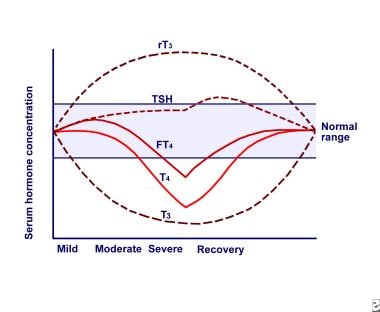
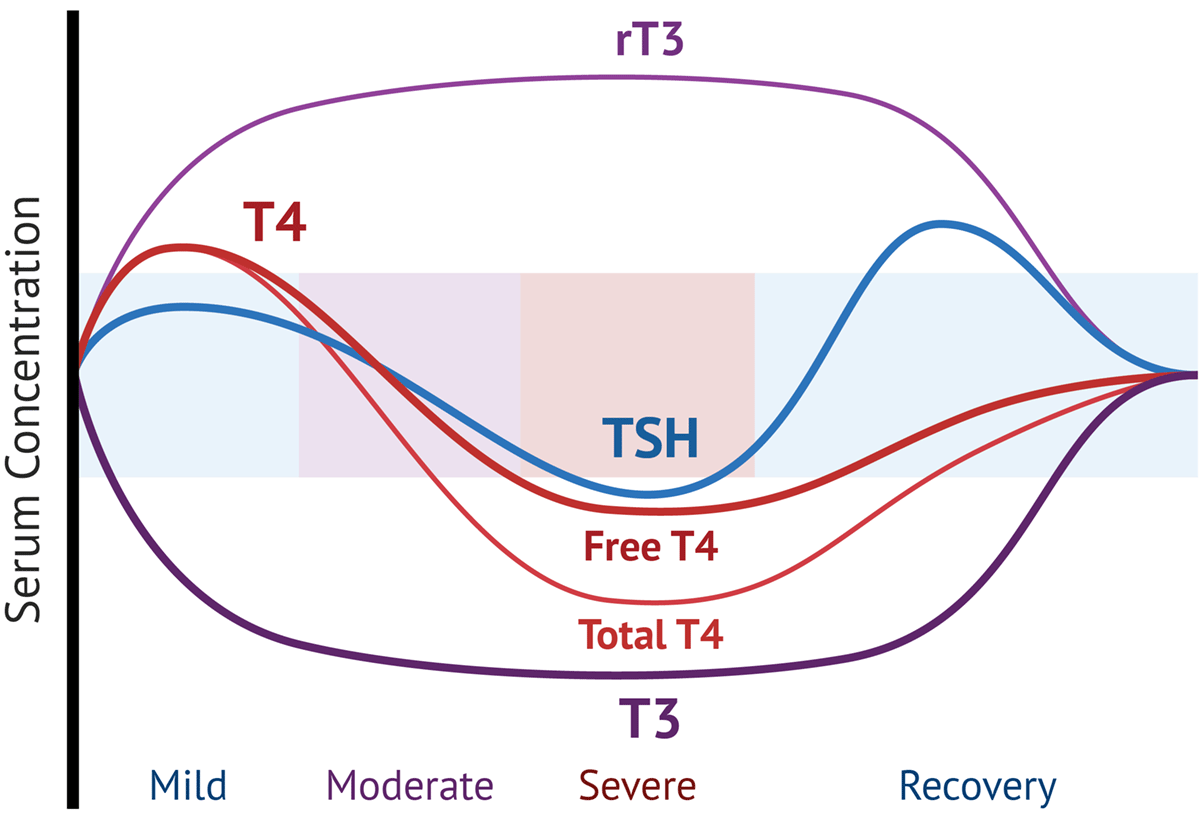

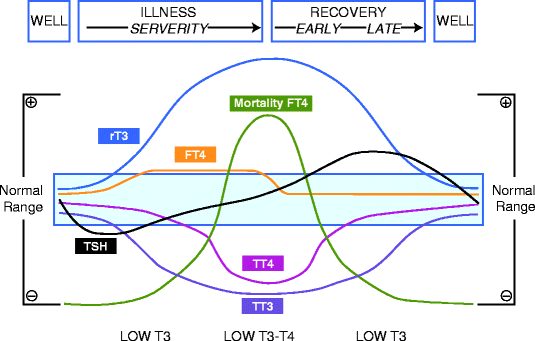

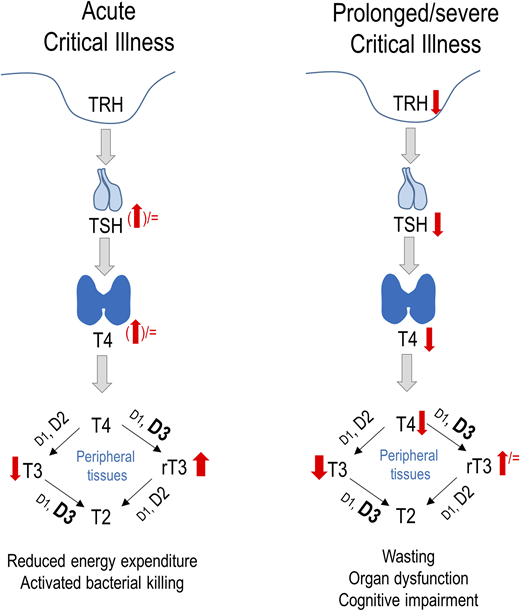


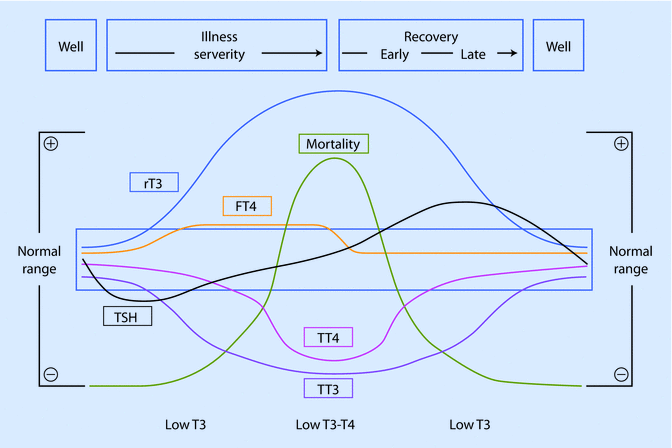

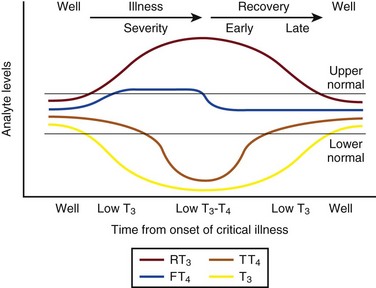

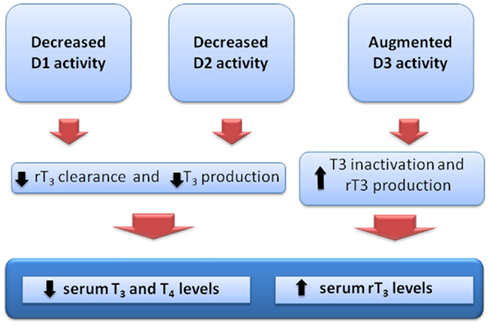

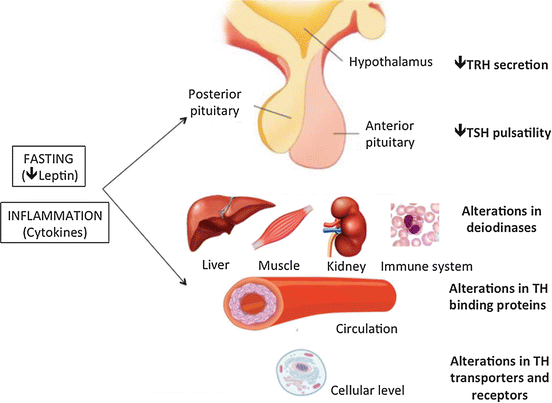

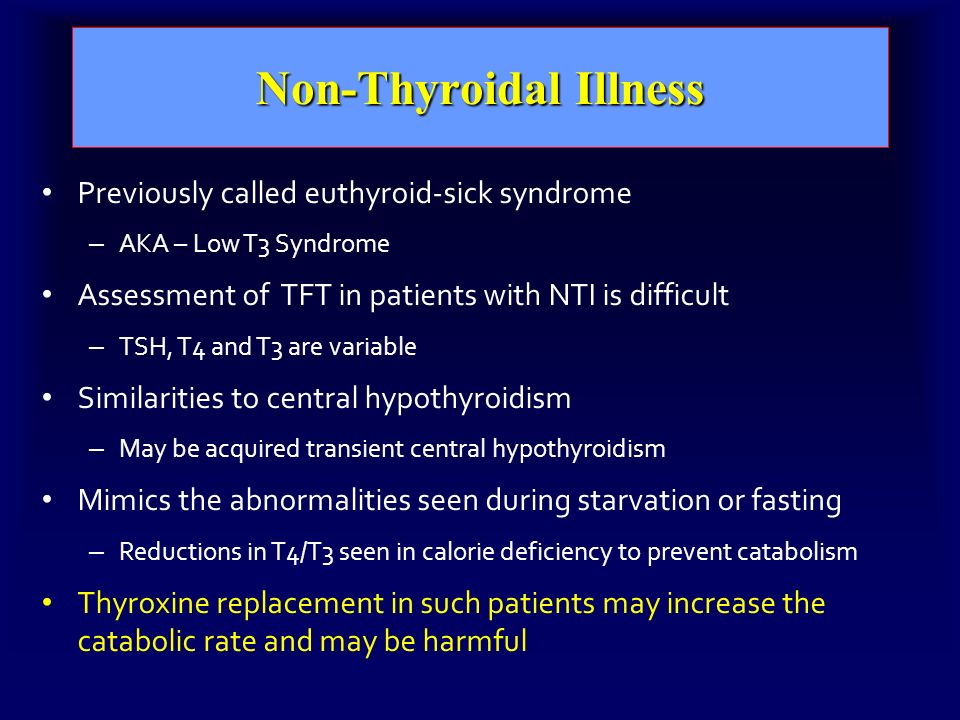

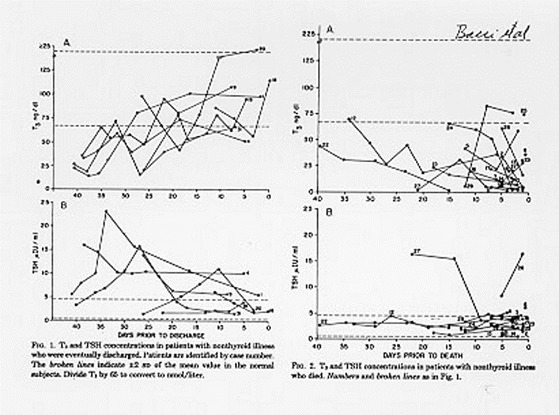


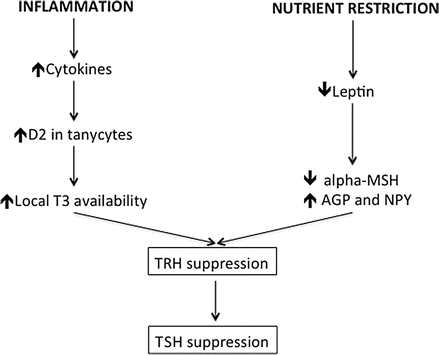
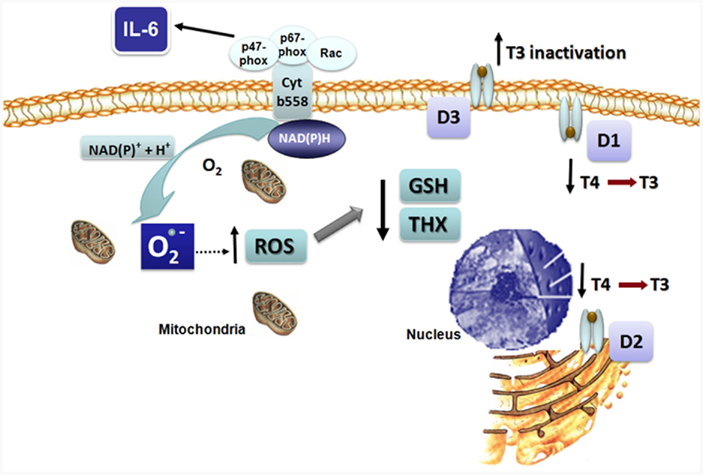


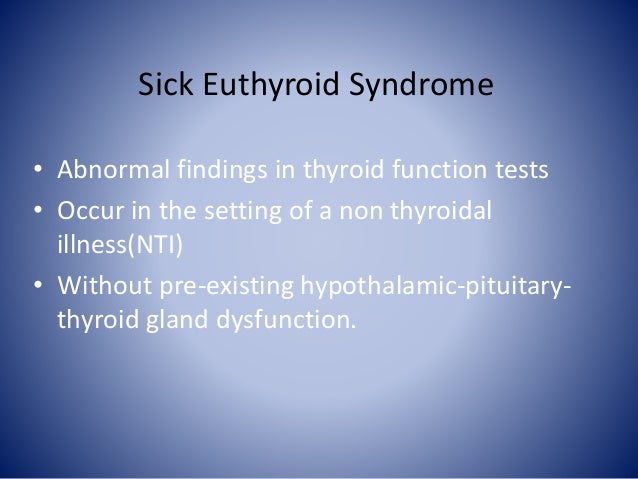
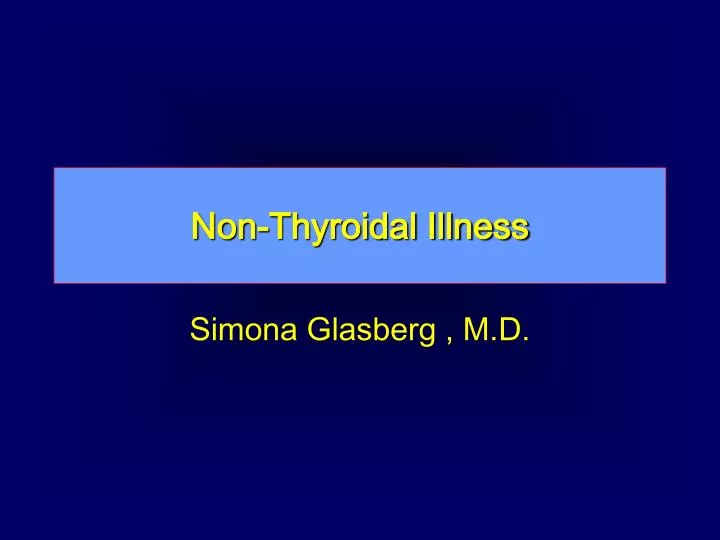



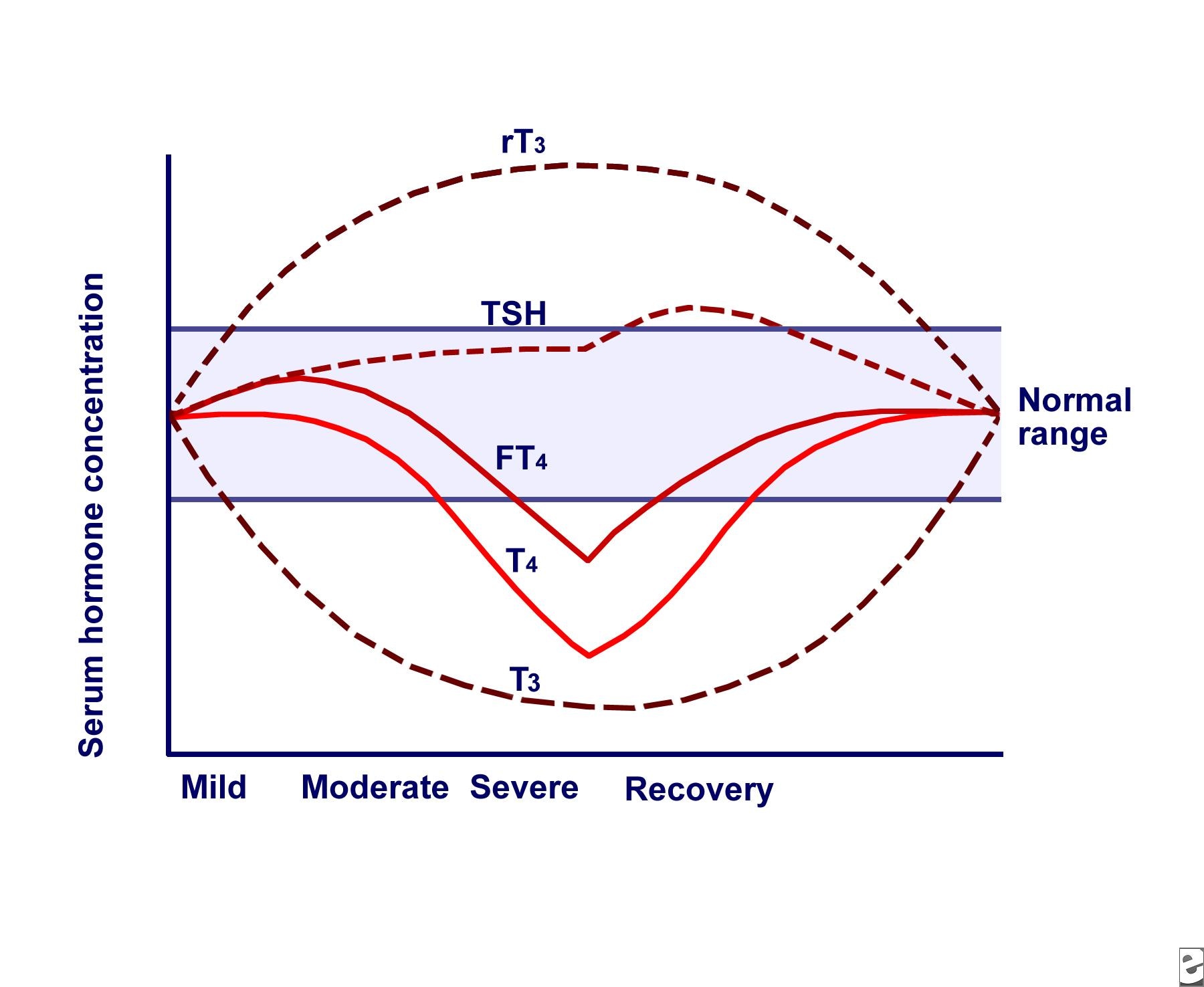

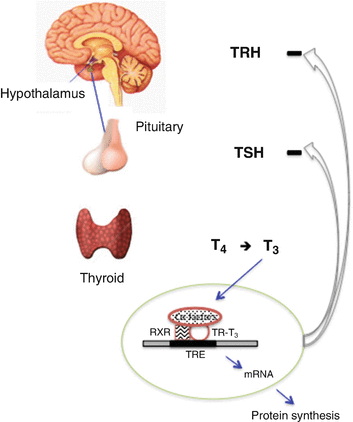

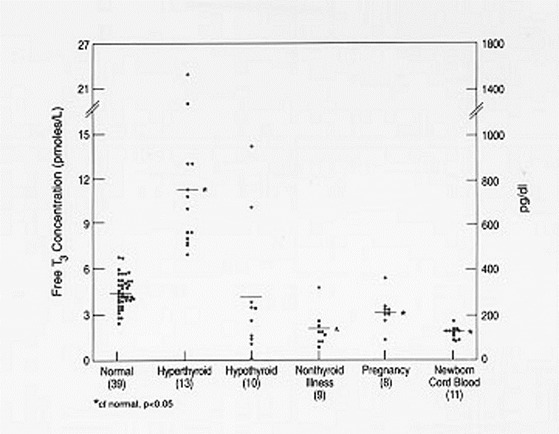






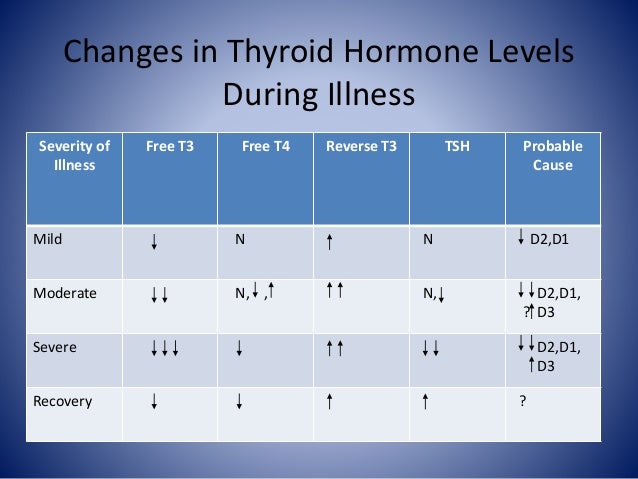




Post a Comment for "Non-thyroidal Illness Syndrome"